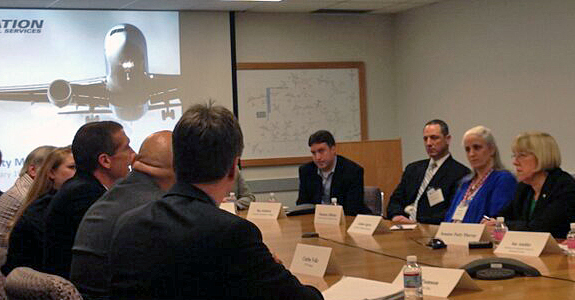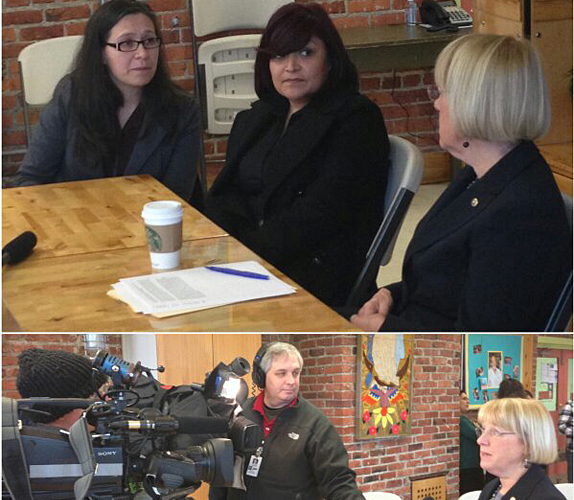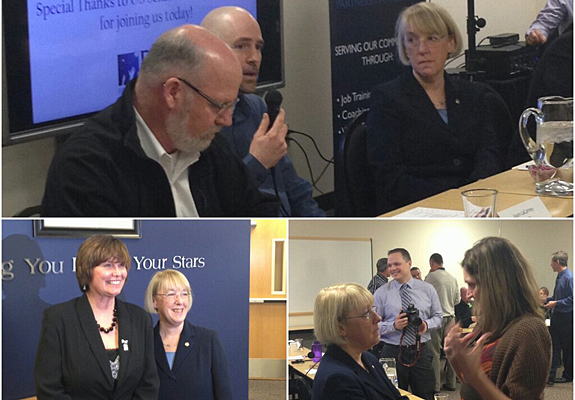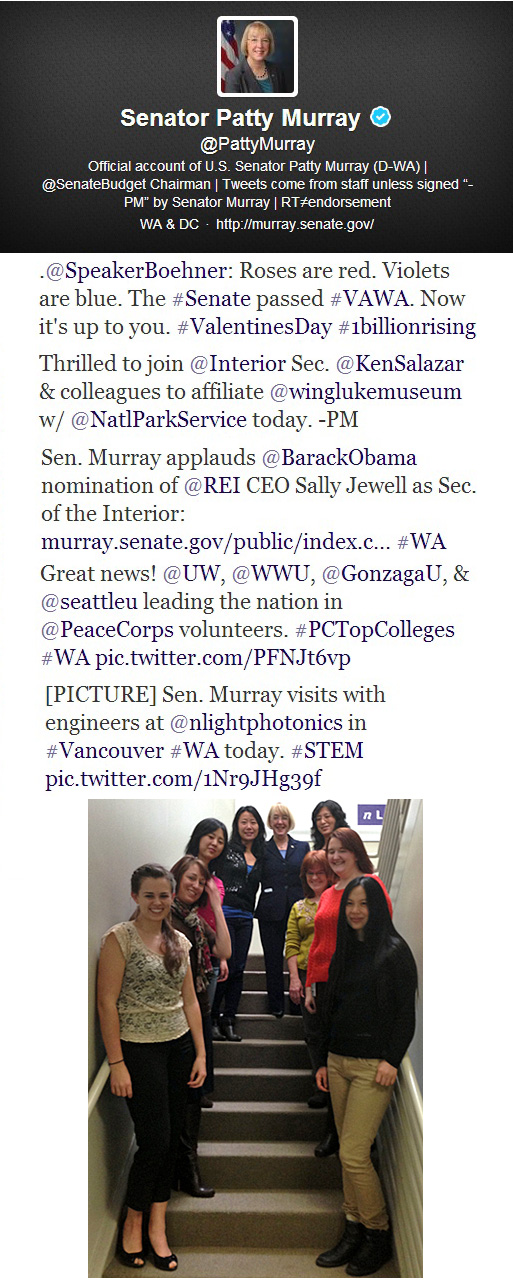
Last week, while the Senate was in recess, I spent time traveling around the state to talk with constituents about what matters most to them. On Tuesday, I traveled to Everett to host a workforce development roundtable, where I met with business and labor leaders, educators, employees and workforce experts to talk about the “skills gap” employers in the region are facing. Across our state, there are nearly 52,000 jobs that are vacant. These are jobs that employers want to fill, but in many cases, they simply can’t find the workers with the skills needed to fill them. This is unacceptable if we want to compete and win in the 21st Century, and it’s why I’ve been working so hard on efforts to train a workforce for growing industries.
I also had the opportunity to discuss my new role as Chairman of the Senate Budget Committee. This is a role that certainly won’t be easy, but it will put me in the middle of the decisions we make as a nation about investing our finite resources. To me, being Budget Chairman isn’t just about addressing our budget deficits, it’s about addressing our education, training, and jobs deficits. Working to close the skills gap is a critical part of that effort. I am going to take the stories I heard in Everett Tuesday back to D.C. to fight for increased investments to end the skills gap.
“Aerospace workers talk training with Sen. Murray” – The Everett Herald
The Time for Immigration Reform is Now

Last week, I hosted a roundtable discussion at El Centro de la Raza in Seattle with local immigrants and immigration reform advocates to hear how their lives have been touched by the current immigration system. It’s not enough to look at statistics and reports that don’t get to the heart of why we need reform. It’s real life stories and tough challenges that people in our communities face that matter most to me. At the roundtable, I heard from small business owners that are being held back, dreamers that want to go to college and succeed, and families that have been torn apart by a system that has been broken for too long. It’s clear to all of us that we need to fix the system now, and after the election last fall, I think Congress knows it’s time, too. Fixing the system will be good for our economy, good for our budget, and it will help ensure we remain true to our country’s ideals of opportunity and inclusion. I will use the stories I heard at the roundtable as I continue fighting for comprehensive immigration reform in Washington, D.C.
Hiring our Heroes

I traveled to Vancouver on Thursday, where I had the opportunity to host a roundtable discussion on the challenges of veterans’ employment and the benefits available to businesses who hire veterans. That discussion took place at the offices of Partners in Careers, an organization that works to provide resources, training, and job placement opportunities to veterans in the community. I discussed workforce training elements in my VOW to Hire Heroes Act, and heard directly from local businesses who hire veterans, an Iraqi War veteran, and officials from the VA.
Serving our veterans has been a life-long interest of mine, and although I am no longer the Chairman of the Veterans’ Affairs Committee, I will continue my work on behalf of veterans in my new role as Chairman of Senate Budget Committee. Making the transition home for our separated veterans should be as seamless as possible. Veterans have leadership ability, discipline, and technical skills to not only find work but to excel in 21st Century workforce, but despite their abilities, vets continue to struggle. This is simply unacceptable. I believe the next step to getting our veterans back to work is to build partnerships with private business large and small to hire our nation’s heroes. Our roundtable discussion focused on the incredible gains already made by local businesses and what more can be done to help our nation’s heroes.
Supporting the Columbia River Crossing
While I was in Vancouver Thursday, I spoke at the Columbia River Economic Development Council’s quarterly luncheon, where I reiterated my support for the construction of the Columbia River Crossing. I thought it was critical to join with a group of job creators to talk about the single biggest investment we can make in this region’s economic future.
I know there is no shortage of controversy locally about any number of aspects of this project. But instead of highlighting where we are divided, I wanted to point out where we are united. We all agree that the current Columbia River Crossing is a piece of World War I era infrastructure that needs to be replaced. We all know from personal experience that it has the only stoplight on I-5 in the country, that it cannot keep up with the growth of Portland and Vancouver, that it hurts businesses trying to get their goods to market , that it slows people trying to get to and from work, and that the only mass transit on the bridge, sits in the same traffic as everyone else. These undeniable realities are what brought community leaders together from both sides of the river over a decade ago. The understanding that the status quo was no longer acceptable is what brought consensus and compromise around a bridge design that would finally bring the CRC into the 21st century. And today, they are realities that businesses and families on both sides of the river still agree on. I look forward to continuing to work with the community to get this project across the finish line.
“Sen. Murray: County commissioners ‘turning their backs’ on region’s economic development” –The Columbian
We Moved!
You can now find my Washington, D.C. staff in Russell Senate Office Building, Room 154. Check out our first Vine announcing the news!
Twitter Round-up



